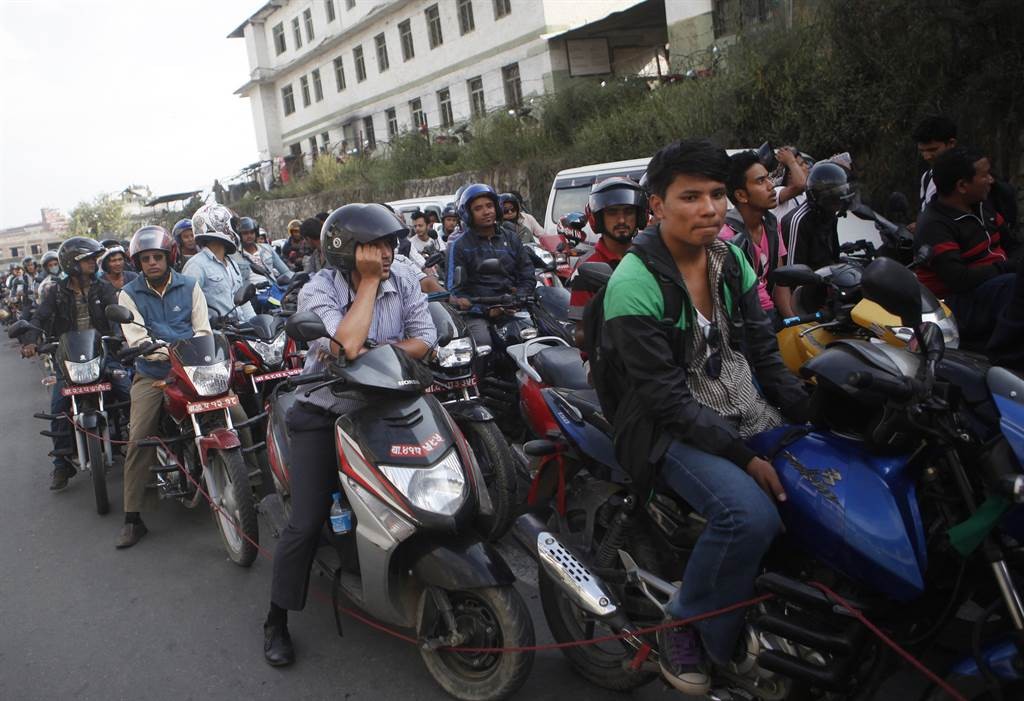Smriti RDN Neupane, Nepal, SSH Blog Correspondent

In Nepal, due to “unofficial blockade” by India since September, 2015, no fuel could be imported via the border. The blockade of borders has been causing a crisis in lives of Nepali people since it is a landlocked country surrounded by India on three sides. They have been suffering from shortage of many basic amenities in life most importantly, fuel (petrol, diesel and gas) and medicinal supplies. Fuel shortage was the first thing that hit and caused impact on daily lives of people.
Public and private vehicles became scarce, creating difficulty in mobility for everyone. During the initial days, it worsened in a way that schools had to shut down and people started walking or working from home in Kathmandu. Although there were Safa Tempos (battery-run three wheelers), there were not enough to accommodate everyone.
After the first few days, young people from Kathmandu started initiating various campaigns from a cycle rally with slogan “No Petrol, No Problem” to peaceful protests in front of the Indian embassy and Nepali government offices. The campaigns were not limited to protests and strikes but were also focused on adaptation and how to be self-sustainable.
The people who had free seats on their two wheelers or four wheelers started offering rides to others who were traveling through the same route. Similar, a campaign on Facebook called “Carpool Nepal,” which is an open group where people who had access to Facebook could #offer and #ask for rides. This became an instant hit among the young students and office workers. This fostered a very communal feeling among people towards one another in Kathmandu valley and many people benefitted through it.
Unfortunately, a campaign initiated purely to help people became a site for discomfort for women, both on the page itself and also during rides in the public roads. Various instances of harassment against women started happening. Women and girls shared their stories on the Facebook page and they were mostly met by ridicule and derogatory comments, mostly by men.
The instances of harassment started increasing at such a rate that in almost a week, a few of the young women came up with a closed Facebook group named “Carpool Nepal (Women).” Some commented that the new group was useless because it served the same purpose as “Carpool Nepal” but many women are glad that it exists.
I had a conversation with one of the administrators of the closed group, who wished to remain anonymous. Part 2 contains my conversation with them.
Smriti coordinated Safe cities campaign in Nepal with a team of feminist activists of various organisations, networks and community groups from 2011 to 2014 and is still voluntarily engaged with it. She is currently engaged in an action research and advocacy on women’s leadership in climate change adaptation focusing on women’s time use.
